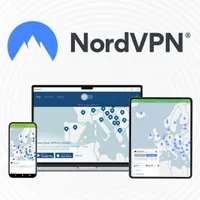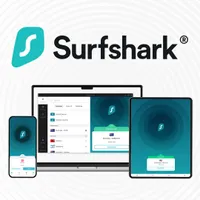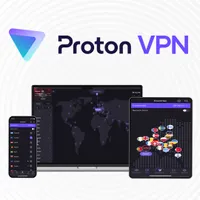The best VPNs for iPhone – top choices for iOS based on expert testing
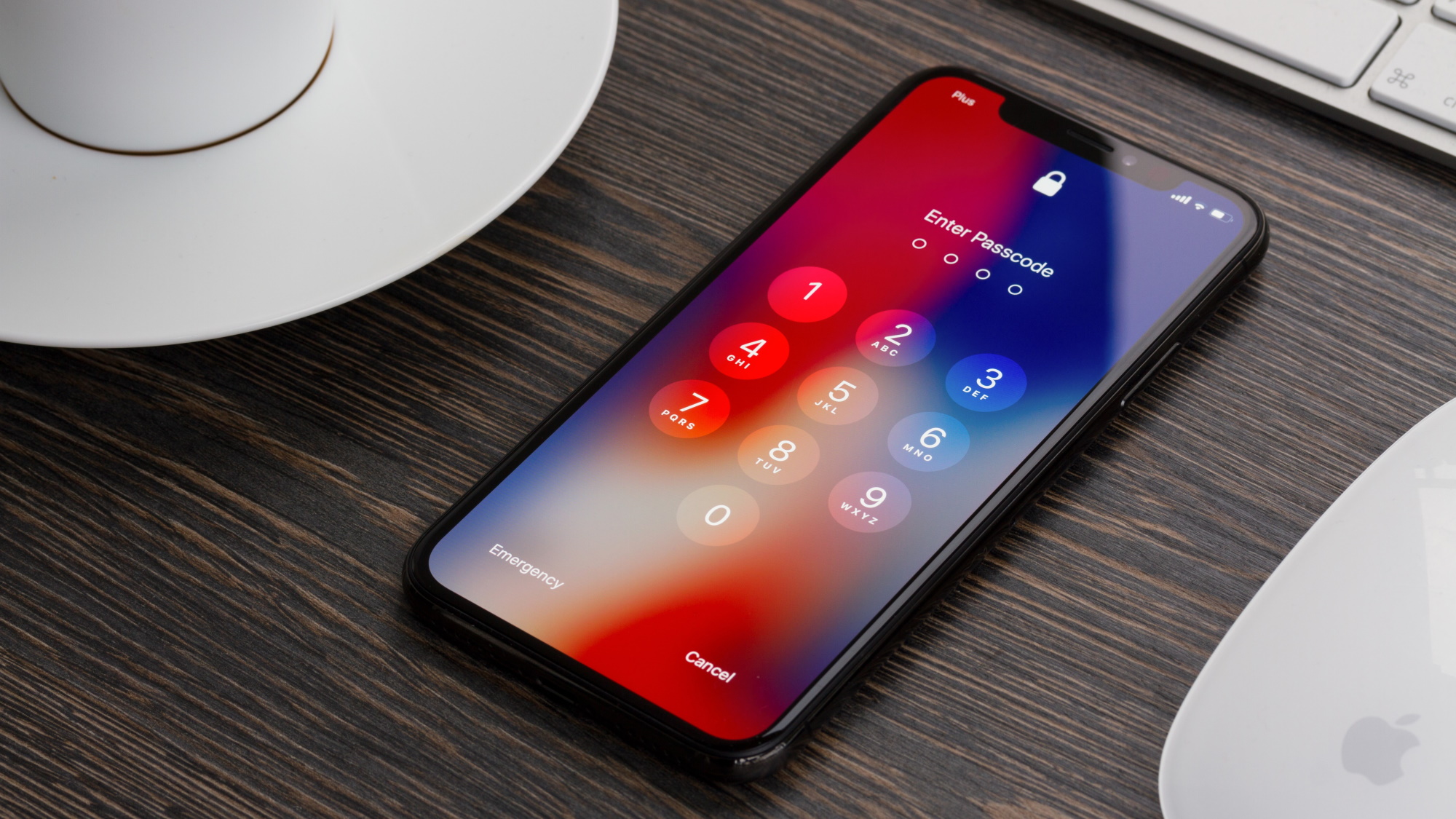
The Apple App Store is packed with loads of VPNs for iPhone – around 1,500 according to our latest maths. However, only the best VPNs for iPhone offer the speed or security your device needs. The fact that many iPhone VPNs claim to be the fastest or most secure makes it all the more challenging to separate the marketing hype from reality, especially if you’re new to Virtual Private Networks (VPNs).
This is where our rigorous testing process comes in. Through measuring server speeds, running DNS leak tests, fine-combing privacy policies, and more, we’ve identified NordVPN as the best VPN for iPhone.
Whether you’re picking up an iPhone 17 and looking to browse privately on public Wi-Fi or simply access your favorite streaming service on vacation, here you’ll find a VPN for iPhone that fits your needs and suits your shiny new device.
The 3 best iPhone VPNs in 2026
1. NordVPN: from $3.39 per month
The best iPhone VPN
For an iPhone VPN that’s strong in all areas, you can do no better than NordVPN. It boasts a large server network, almost unrivaled speeds, and a generous selection of extra features on iPhone to further boost your online security. It has a very solid iOS app and comes with a 30-day money-back guarantee, so you can try it for yourself, risk-free.
3. Surfshark: from $1.99/month + 3 months extra
The best cheap (and fastest) iPhone VPN
If you’re looking for the fastest speeds for browsing and streaming on iOS, Surfshark is the iPhone VPN you want. Users with lots of devices or who want to share protection with others at home will appreciate Surfshark’s unlimited connection allowance. Surfshark has a lightweight iOS app and numerous extras, which, with its 30-day money-back guarantee or 7-day free trial, make it a great value choice.
3. Proton VPN: from $3.59/month
A super quick, seriously private alternative
Proton VPN is a privacy-first provider that stands out for its Swiss roots and privacy options such as paying anonymously in cash. Its performance is impressive too, making it a great choice for streaming on iPhone. Proton VPN has more servers than most VPNs, and its iOS app makes it very easy to find the perfect connection. All of this comes at a cost, but a 30-day money-back guarantee is included so you can try before you buy.
The 5 best iPhone VPN apps in 2026
Why you can trust TechRadar
The best VPN for iPhone
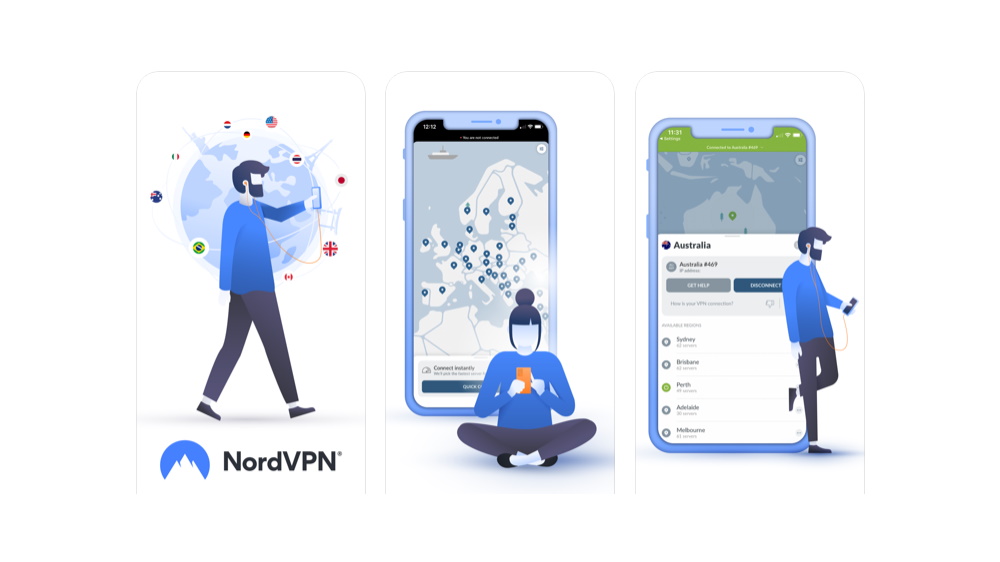
1. NordVPN
A super-fast app with plenty of features
Dedicated iPhone app: Yes | Also available for: Windows, Mac, Android. Linux | Maximum devices: 10 | Integrated kill switch: Yes | App Store review: 4.5
NordVPN is the best VPN for iPhone, deftly balancing performance, protection, and usability. It boasts one of the most impressive server networks, covering over 160 locations. One of the fastest VPNs we’ve tested, it’s ideal for streaming in 4K resolution, as well as playing online games.
Another area in which NordVPN sets itself apart is its generous selection of features, which further bolsters your online security. Most notable of these are Meshnet, which is soon to be retired, and Threat Protection Pro, the basic version of which, Threat Protection, is available on iPhone. Though a suite of other security-oriented capabilities helps ensure your device is never at risk.
Read more about NordVPN ▼
Open NordVPN’s iOS app for the first time, and you’ll see a clean, clear layout free from unnecessary clutter. A big quick-connect button lets you secure your connection with a single click. When disconnecting, you’ll be asked to confirm the action or pause the VPN for a set period of time, though you can bypass this via NordVPN’s convenient iPhone widget.
Another prominent design feature in NordVPN’s iOS app is its server map. Extremely responsive, it can save you from scrolling through a lengthy list of server locations – though we often find the traditional list to be quicker. One slight criticism with the iOS app is that the settings menu isn’t easy to find, requiring you to dig through menus to reach settings that’ll optimize your VPN connection should you wish to – an issue you won’t face with a provider such as ExpressVPN.
NordVPN has no shortage of features spread across multiple subscription tiers. NordVPN security products, such as NordPass, its password manager, are included in select subscription tiers, but come with their own iOS apps, while Threat Protection, the basic version of Threat Protection Pro available on iOS, is integrated into the app itself.
This tool isn’t the most effective, blocking only 24% of malware sites and 34% of phishing sites during our testing, but it was a capable ad-blocker, stopping 84% of ads it faced. By comparison, Threat Protection Pro, available only on PC and Mac, stopped 79% of malware sites and 87% of phishing sites, so it would be good to see similar results reach iOS in the future.
There are multiple VPN protocols to choose from, the standout of which is NordVPN’s proprietary protocol, NordLynx. Also of note is NordWhisper, NordVPN's protocol for evading VPN censorship. A variety of specialty VPN servers are available, too, including Double VPN, which routes your internet traffic via two servers for an extra layer of encryption, Onion Over VPN, which routes your VPN connection via the Tor Network for added security, and P2P optimized servers, which is great for those looking to efficiently torrent with their VPN connection.
Meshnet – NordVPN’s feature for creating secure, private networks between devices – is available for iOS, the feature is unique to NordVPN, and we’ve found it to be very useful – especially when needing to transfer large files quickly or remotely access media servers while on the go. Plus, you can access it easily from the home screen. It's such a useful feature, in fact, that it recently survived being discontinued due to community feedback pushing NordVPN to reverse the decision.
NordVPN has consistently ranked among the fastest VPNs. In our latest round of speed tests, it maxed out at over 1256 Mbps over its WireGuard-based NordLynx protocol. The speed was evident in my time using NordVPN’s iOS app. Browser pages loaded quickly, and I was able to stream in high resolution with no lag or buffering, even when connecting to servers further afield. OpenVPN speeds weren’t so high, achieving 974 Mbps – though this is more than enough to stream or game comfortably if you’d rather the added security OpenVPN provides.
When it comes to your data’s security, you can’t go wrong with NordVPN’s NordLynx protocol, which uses ChaCha20 encryption, or OpenVPN with its 256-bit AES encryption. Both are highly secure, but if you’re also looking for speed boost, NordLynx is your best bet. NordVPN has also consistently passed our leak tests with flying colors, and I found the iOS app to be no exception. It’s also great to see that NordVPN’s no-logs policy was audited by Deloitte at the end of 2024 – meaning there’s added reassurance that your data could never be found on a NordVPN server should a data request from authorities be granted.
The fastest iPhone VPN
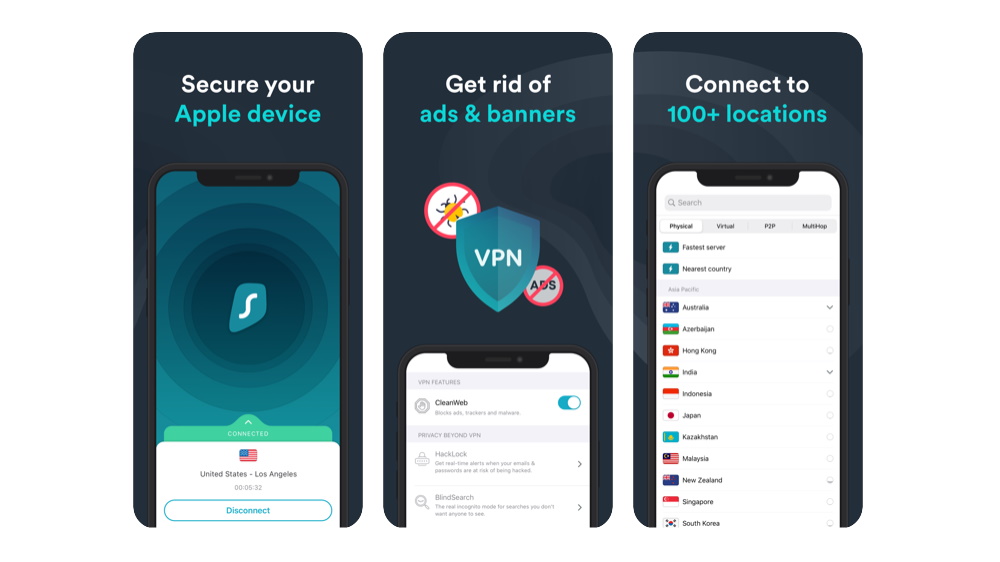
2. Surfshark
A budget-friendly iPhone VPN that doesn't skimp on quality
Dedicated iPhone app: Yes | Also available for: Windows, Mac, Android. Linux | Maximum devices: Unlimited | Integrated kill switch: Yes | App Store review: 4.8
Surfshark is the fastest VPN we’ve tested, making it a strong choice if you’re looking for an iOS VPN that can handle the rigors of streaming, gaming, and video-calling. Featuring a lightweight iOS app, it’s ideal for first-time VPN users. The sheer number of features included, particularly with Surfshark One plans, makes it one of the best value VPNs to be found.
Like several of its rivals, Surfshark offers ad, tracker, and malicious website blocking, as well as MultiHop servers. Much like NordVPN and Proton, Surfshark’s malicious website blocking on iOS wasn’t the best, blocking only 6% of malware sites and 7% of phishing sites in our tests, though it successfully blocked 84% of ads, putting it just on par with NordVPN. Unlike NordVPN, however, Surfshark doesn’t impose a limit on the number of devices you can connect simultaneously, making it ideal for sharing with others at home and ensuring every gadget is protected – especially since Surfshark offers apps for almost any platform.
Read more about Surfshark ▼
Surfshark’s app is responsive and clearly laid out, if a little cluttered in the home view. The quick-connect button, though useful, sits on top and therefore gets in the way when scrolling. Yet there are handy shortcuts for quickly connecting to the fastest server location or the nearest country. It’s also possible to filter by MultiHop, Static IPs, and Dedicated IPs.
The footer menu makes it easy to navigate between the VPN, extra features, and your settings. Switching up your settings is quick and convenient thanks to toggle buttons. Although settings are well explained, the app could benefit from explaining the differences between the various VPN protocols on offer, as not all users will be familiar with them.
Surfshark’s iOS app is packed with features, putting it on a par with NordVPN. Although multiple subscription tiers are available, everyone gets access to MultiHop servers, ad and tracker blocking, and even Surfshark’s Alternative ID feature, with which you can generate an alternative name, email address, and phone number to protect your real information.
A Surfshark One subscription opens up dark web monitoring, a private search engine, and antivirus protection. Unfortunately, the latter isn’t yet available for iOS. Surfshark’s iOS widget is available in three sizes, making it even quicker to connect to a server. Currently in beta is a split tunneling feature, so you can choose which websites can bypass the VPN connection.
With speeds of 1615 Mbps over the WireGuard protocol, Surfshark is the fastest VPN we’ve tested. Although NordVPN and Proton VPN weren't far behind, it was Surfshark’s OpenVPN speeds of 1038 Mbps that separated it. Something to note, however, is that Surfshark generally took a little longer to connect to servers than we may have expected.
Surfshark ticks every security-related box too. It proves encryption that’s effectively impossible to crack, the iOS app features a kill switch that can be toggled on or off as needed, and DNS leak protection means your ISP won’t see what you’re doing online. If all that’s not enough, Surfshark’s MultiHop routes internet traffic via two server locations for two layers of encryption. Plus, Deloitte recently completed a second audit of Surfshark’s no-logs policy, once again verifying that the VPN keeps no identifying logs.
The most private iPhone VPN
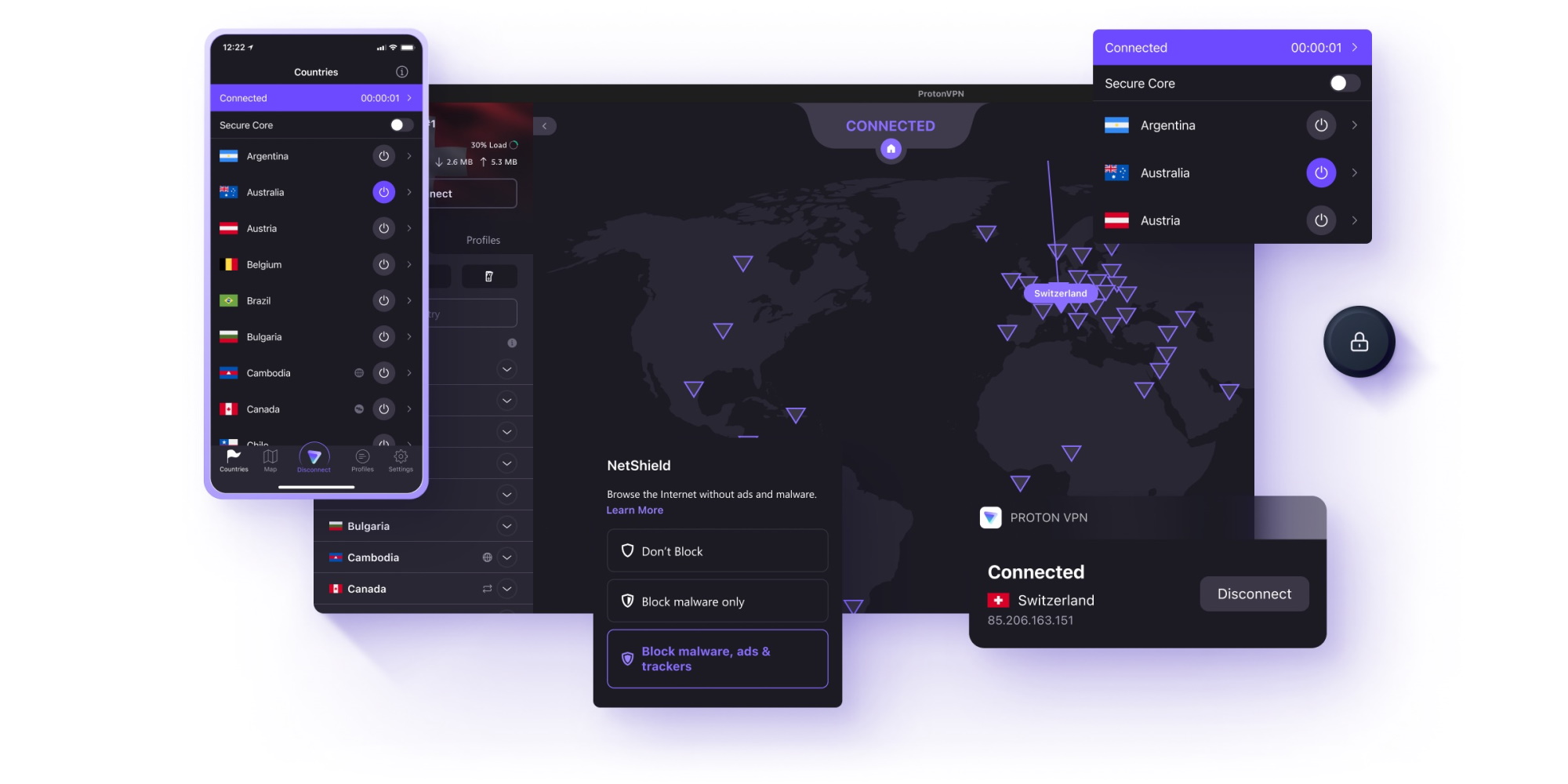
3. Proton VPN
A powerful, private, iPhone VPN alternative
Dedicated iPhone app: Yes | Also available for: Windows, Mac, Android, Linux | Maximum devices: 10 | Integrated kill switch: Yes | App Store review: 4.5
Proton VPN has arguably the nicest-looking iOS app, thanks to a significant overhaul in April 2025. The app is easy to navigate and responsive. It provides a wealth of choice as to the type of server you connect to, with the option to create unique profiles for different use cases, be it streaming, private browsing, or side-stepping internet censorship.
You can expect fast speeds with Proton VPN, having achieved 1521 Mbps, putting it among the fastest VPNs for streaming and gaming on iOS. Performance doesn’t come at the expense of privacy, however, with a true no-logs policy and even the option to pay anonymously in cash. The many benefits are reflected in the higher price tag, however.
Read more about Proton VPN ▼
Proton VPN’s iOS app isn’t just pretty either. It offers a quick connect button that is more flexible than most – since it can be set to a specific location, fastest country, or most recently used connection. Once connected, the map clearly pings your location so you can be sure you’re connected. Should you be interested, clicking on the server to which you’re connected displays key details such as the VPN protocol and server load, but that’s as far as details go initially, with more settings and features being located elsewhere – ideal if you’re new to VPNs and don’t want to be overwhelmed with data and settings.
The iOS app’s footer menu features easy-to-follow icons taking you to the home screen, server locations, and settings. The settings couldn’t be easier to adjust, either from dropdown menus or toggle buttons, and there’s a good level of explanation provided alongside settings to ensure beginners aren’t left confused. From the countries menu, you can also see each server’s load, but it’s not possible to filter by specialty servers aside from Secure Core, which makes finding them a little trickier.
Speaking of specialty servers, Proton VPN offers several unique choices. Secure Core servers are unique to Proton and provide an extra layer of encryption, routing your traffic via servers in secure data centers in countries with strong privacy laws, making it similar to multihop solutions offered by other iPhone VPNs but with several added security considerations.
You’ll also find Tor Over VPN servers, which route your VPN traffic via the Tor Network for added security, and servers optimized for P2P and streaming – the latter of which we found to make little difference to Proton’s overly successful streaming capabilities, which we’ll cover later.
Proton VPN’s iOS app is packed with features, including a Stealth protocol for navigating censorship. Proton VPN’s NetShield blocked 79% of ads in testing, but struggled with malware and phishing sites in comparison – blocking only 11% and 19% respectively. Further extras to be found in the iOS app’s settings include Always-on VPN and the option to allow LAN connections. Proton’s Alternative Routing tool lets the iOS app try alternative network routing for when you need to bypass firewalls and other network-related restrictions – perfect if you’re looking to connect in regions such as India or China, where online censorship and VPN restrictions are in place.
No matter the region you’re in, speed is key to good VPN performance, and Proton VPN is among the fastest. It peaked at over 950 Mbps using WireGuard in testing. Its OpenVPN speeds of 240 Mbps were, however, slower than those of NordVPN and ExpressVPN, too. Proton’s VPN Accelerator feature plays a role in any connection you create, as it enhances connection speeds, particularly over long distances, by optimizing efficiency and creating a smoother path for your data. This was proven in our testing.
Proton is a company well known for its privacy-first products, including Proton Mail and Proton Drive. Proton VPN is no exception, as evidenced by its comprehensive no-logs policy, which has been independently verified in multiple audits, most recently in 2024. What's more, traffic is encrypted with ChaCha20 (WireGuard) or 256-bit AES (Stealth and OpenVPN), but if you do want an extra layer of protection, you can connect to a Secure Core server. Proton VPN is also one of the very few VPNs that lets you pay in cash, potentially allowing you to sign up for the service anonymously if you wish to go the extra mile to retain your privacy.
Other VPNs I've tested and recommend
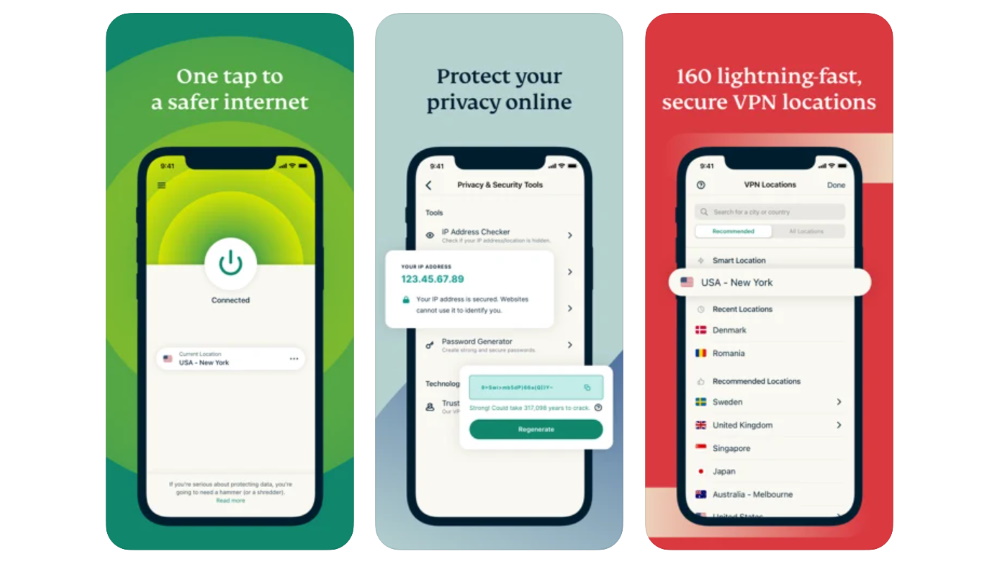
4. ExpressVPN
The best iOS VPN for beginners—perfect security and streaming capabilities
Dedicated iPhone app: Yes | Also available for: Windows, Mac, Android. Linux | Maximum devices: 10-14 (depending on plan) | Integrated kill switch: Yes | App Store review: 4.5
ExpressVPN is a strong all-rounder with an iOS app that’s ideal for first-time VPN users. Though not quite as fast as NordVPN, it’s still speedy, providing consistent connections for streaming on iPhone. It’s on the more expensive side but has quality features, including a password manager.
ExpressVPN offers the most VPN protocols to choose from when compared to the other best iPhone VPNs. This gives users more flexibility in how they use it – especially thanks to the inclusion of both post-quantum encryption and the often-overlooked IKEv2 protocol. If you have any questions, you can count on ExpressVPN’s 24/7 live chat support. ExpressVPN is highly transparent and has undergone many independent audits, including one of its iOS app.
Read more about ExpressVPN ▼
ExpressVPN has a beginner-friendly iOS app that’s quick and easy to download and install. Its large, quick-connect button means searching for a server couldn’t be easier with the iOS app prominently displaying the fastest VPN servers available. Plus, each server’s latency is displayed, allowing you to avoid overpopulated servers or those with higher latency.
The iOS app’s home view even allows for quick access to ExpressVPN’s various Advanced Protection features as well as its dedicated help section. Both of these areas are laid out without excess clutter, and the Advanced Protections area offers easily-understood explanations for each of the features you may need – perfect if you’re new to VPNs. What’s more, dedicating an entire navigation section to help materials is something no other iPhone VPN listed does, and reaffirms why we see ExpressVPN as the best VPN for beginners.
ExpressVPN may not have as many features as some rivals, but it has quality extras nonetheless. Located in the Add-ons section of the iOS app, you’ll find ExpressVPN’s Advanced Protection for blocking ads, trackers, malicious sites, and even adult sites. Advanced Protection’s ad-blocking capabilities were especially good in our testing, achieving a 90% blocking success rate – higher than any other VPN we tested. There’s also the option to set up ExpressVPN Keys, ExpressVPN’s password manager, which has its own iOS app.
While it lacks auto-connect, ExpressVPN does offer two stages of killswitch, Standard and Advanced, which block internet traffic and all network traffic, respectively. This should help to give you as much peace of mind as you need that your connection isn’t insecure.
As mentioned, ExpressVPN’s offering of Lightway, IKEv2, OpenVPN, and WireGuard on iOS gives you more choice than any other provider listed. Lightway, ExpressVPN’s lightweight proprietary protocol, allows for fast, consistent connections. Our in-house speed tests found ExpressVPN peaked at 1479 Mbps via Lightway, proving its capability for even the most bandwidth-heavy activities, including online gaming. Using the ExpressVPN iOS app’s built-in speed test, my speeds barely dipped when connecting to nearby server locations.
ExpressVPN has undergone more independent audits than most VPNs on the market, demonstrating confidence in its security, as well as providing trust and transparency. To date, there have been 23 audits, most recently by KPMG, which confirmed the VPN provider doesn’t keep logs as per its privacy policy. What’s more, the core codebase of ExpressVPN’s Lightway protocol is open-source. It also uses 256-bit AES encryption, making it extremely difficult, if not impossible, for malicious actors to intercept data. Plus, it’s now offering industry-approved post-quantum encryption, with ML-KEM now available on Lightway, should you wish to use it.
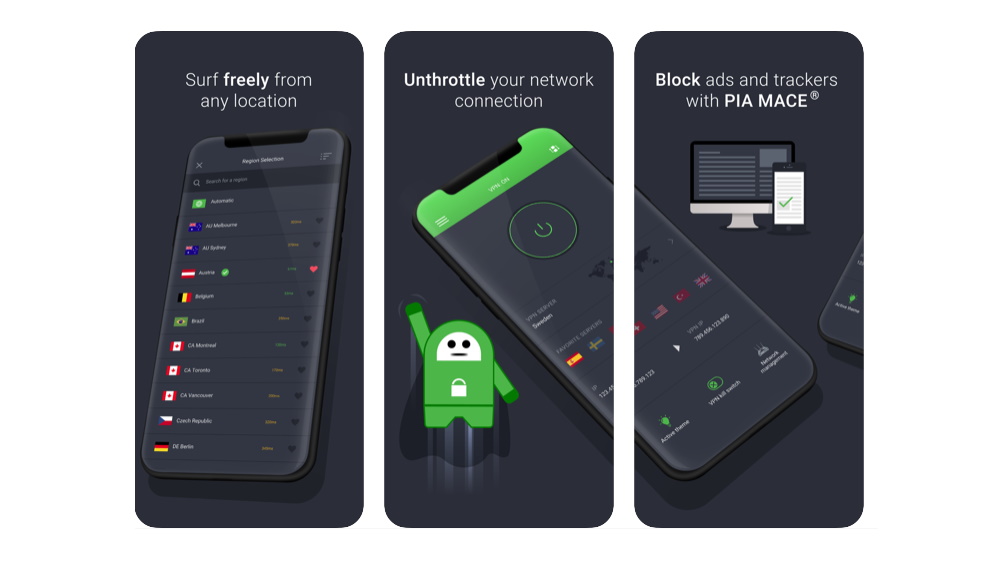
5. Private Internet Access (PIA)
A great balance of performance and price
Dedicated iPhone app: Yes | Also available for: Windows, Mac, Android, Linux | Maximum devices: Unlimited | Integrated kill switch: Yes | App Store review: 4.6
Private Internet Access has a highly configurable iOS app. This, coupled with many advanced features, makes it ideal for advanced users or simply those with a specific VPN setup in mind. It’s also suitable for users with lots of devices to secure because there’s an unlimited simultaneous connection allowance, making its low pricing all the more attractive.
While PIA is fast enough for streaming, it’s a little behind the likes of NordVPN, Surfshark, and Proton VPN. Where it excels, however, is in security, using the highest level of encryption and providing a robust kill switch. A no-logs policy that’s been independently verified by Deloitte also means you can use PIA in the knowledge that your privacy is respected.
Read more about PIA ▼
Although not difficult to use, the interface of PIA’s iOS app comes with a bit of a learning curve, largely due to the degree to which it can be customized. You can adjust what you see with options to make certain information visible or disappear from view, or otherwise switch up the order. For example, you may not be interested in knowing how long is left on your subscription but want to see how much data you’ve consumed. You’ll find a quick connect button, and it’s also possible to see each server’s ping and add specific server locations to a list of favorites for faster future reference. Luckily, the settings page is clearly laid out and well-explained, so less experienced VPN users aren’t left completely on their own trying to figure out what they need.
PIA doesn’t offer as many features as NordVPN or Surfshark. Worse still, a number of its main features aren’t actually available for its iOS app. As such, iOS users don’t benefit from its antivirus, ad blocker, or Double VPN servers, which is disappointing. There is the option to get a dedicated IP address, but this costs extra.
What PIA’s iPhone app does offer is Automation, letting you set how PIA behaves upon connection to different networks, whether that’s to always connect to the VPN, always disconnect, or to retain its current state. You’ll find a built-in kill switch feature, as well as a convenient iOS widget complete with a quick connect button.
The speed of Private Internet Access has taken a big step forward across our most recent speed tests, taking it to 436 Mbps, up from 330 Mbps on WireGuard. These speeds are half that of the other best VPNs for iPhone, but even then, you’ll have no trouble streaming or playing games on your iPhone. PIA’s OpenVPN speeds of 257 Mbps outperformed several big-name VPNs, too – great news if you’d prefer to stick to the more secure protocol. Plus, it had no issues unblocking any major streaming service we pitted it against, which is great if you’re looking to travel without missing out on home favorites.
PIA may not have many features in its iOS app, but it provides all of the essentials required to keep your data safe. This comes in the form of robust VPN protocols such as OpenVPN and WireGuard, which use 256-bit AES and ChaCha20 encryption, respectively. The VPN uses its own encrypted DNS servers to prevent DNS leaks and protect your privacy. PIA also has a strict no-logs policy, which was audited by Deloitte in 2024, verifying the VPN doesn’t log identifying information of users.
How to choose an iPhone VPN
If you’re still undecided as to which of the best VPNs for iPhone is right for you, consider how you use your device. Do you require the fastest speeds for 4K streaming? Are you looking for a VPN that provides additional protection like an antivirus? Here are some key criteria to consider:
Strong security
The risk with some VPNs is that your data may not receive adequate protection, or that data will be leaked outside the VPN tunnel. It’s therefore imperative to choose an iPhone VPN that uses a high level of encryption, provides DNS leak protection, and includes a robust kill switch.
No-logs policy
The risk of using untrustworthy VPNs is that your personal information will be logged and sold to the highest bidder. The best VPNs for iPhone operate no-logs policies. What’s more, they’re willing to prove this through audits from independent third parties.
Server coverage
Consider whether a VPN has servers in your country for the fastest connection speeds.. All major VPNs have servers in popular countries such as the US and UK, but few have servers in countries like Andorra.
Connection speed
Whether you plan to stream or game, you don’t want an iPhone VPN with a reputation for slow speeds. The fastest VPNs use lightweight protocols like WireGuard and offer unlimited bandwidth so you can stream in 4K without having to worry about annoying interruptions.
Extra features
Are you looking purely for a Virtual Private Network or for extra protection in the form of an ad blocker or an antivirus? VPN services are increasingly offering extras, be it cloud storage or a password manager. If you’re undecided between two providers, these extras might just help swing the difference.
Unblocking
If you regularly travel abroad and need to access your usual websites and services from home, the best iPhone VPNs can help you do that. They tend to offer more servers and IP addresses and, in some cases, VPN protocols that disguise VPN traffic as regular web traffic to evade internet censorship.
How we tested iPhone VPNs for iOS
There’s plenty to consider when reviewing a VPN, and there’s no shortage of VPNs to review either. Our testing starts from the moment we visit a VPN provider’s page, where we analyze what’s on offer and what’s being claimed. We’ll compare the available subscription plans and find out just how easy it is to sign up, as well as download and install the VPN’s software.
We stress-test every aspect of a VPN to ensure that it offers the highest level of security. This includes force-closing our VPN connection to see if a VPN’s kill switch actually blocks our internet traffic. Likewise, we want to ensure a VPN isn’t keeping logs, which requires studying its privacy policy, as well as the results of any independent audits.
To determine the fastest VPNs, we conduct extensive speed tests using a US home connection and a 1 Gbps UK data center, using at least three different speed test sites in the process. At least five tests are run on each site, generating an average. Further, testing is carried out across mornings and evenings to account for any potential network fluctuations.
Coupled with these many tests are countless hours of hands-on experience with each VPN’s apps, allowing us to get a feel for just how accessible and responsive they are. This is just a small window into our testing process, but if you’d like to know more, such as how we test each VPN’s unblocking or support, our VPN testing methodology explores this in greater detail.
FAQs
What is the best iPhone VPN?
Right now, NordVPN is the best iPhone VPN. Its impressive mix of security features, high download speeds across OpenVPN and WireGuard protocols, and its continued value for money across different plans make it the best choice for most people. Despite this, VPNs suit people in different ways, so you may find you prefer the experience offered by other VPN providers.
Do iPhones have a built in VPN?
iPhones don’t have a built-in VPN service, but do include a VPN client that lets you manually configure a VPN server or use a third-party VPN app to set it up. The most straightforward way to use a VPN with your iPhone is to download and install a third-party VPN app, like NordVPN, and manage the connection within the same VPN app.
Why should I use a VPN for my iPhone?
Using a VPN on your iPhone encrypts your internet traffic, preventing hackers and snoopers from accessing your data – especially important when using insecure public wifi networks. A VPN for iPhone can also help you bypass geographic restrictions on content by changing your IP address to spoof your location. With your real IP address hidden, you can browse privately.
We test and review VPN services in the context of legal recreational uses. For example: 1. Accessing a service from another country (subject to the terms and conditions of that service). 2. Protecting your online security and strengthening your online privacy when abroad. We do not support or condone the illegal or malicious use of VPN services. Consuming pirated content that is paid-for is neither endorsed nor approved by Future Publishing.
Sign up for breaking news, reviews, opinion, top tech deals, and more.

Mark is a Tech Security Writer for TechRadar and has been published on Comparitech and IGN. He graduated with a degree in English and Journalism from the University of Lincoln and spent several years teaching English as a foreign language in Spain. The Facebook-Cambridge Analytica data scandal sparked Mark’s interest in online privacy, leading him to write hundreds of articles on VPNs, antivirus software, password managers, and other cybersecurity topics. He recently completed the Google Cybersecurity Certificate, and when he's not studying for the CompTIA Security+ exam, Mark can be found agonizing over his fantasy football team selections, watching the Detroit Lions, and battling bugs and bots in Helldivers 2.
